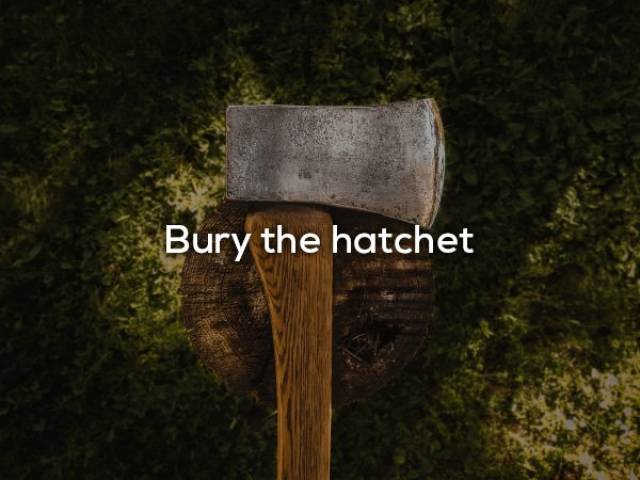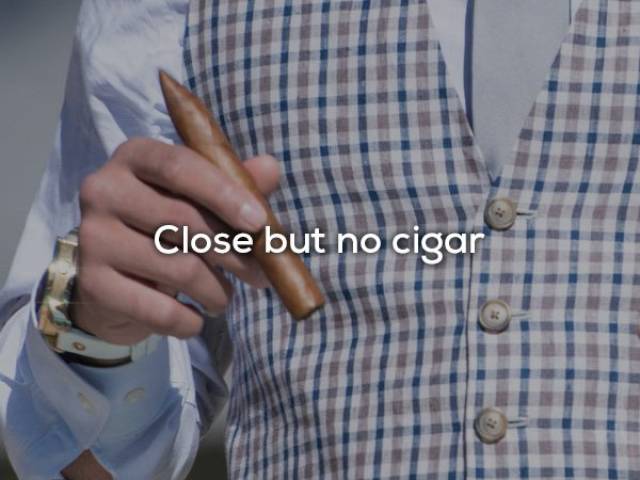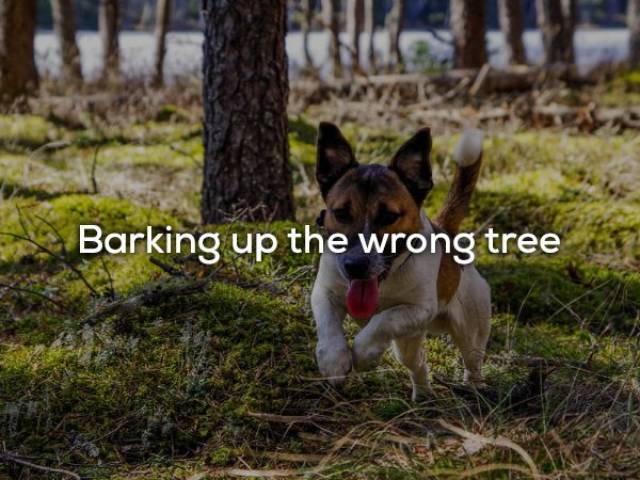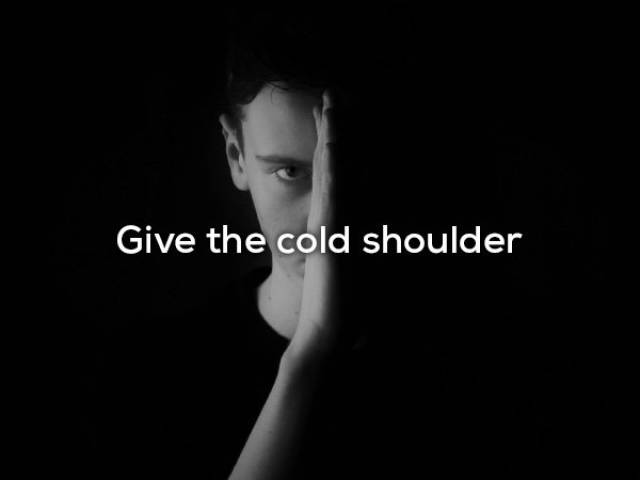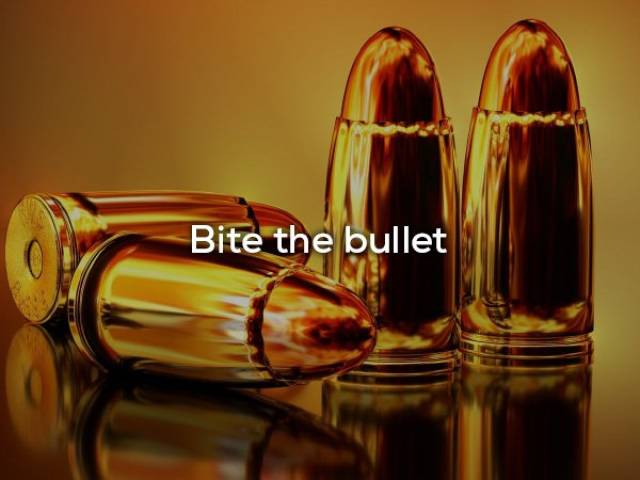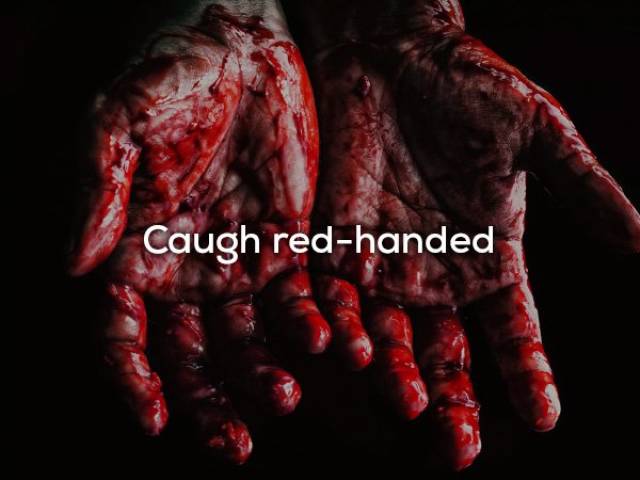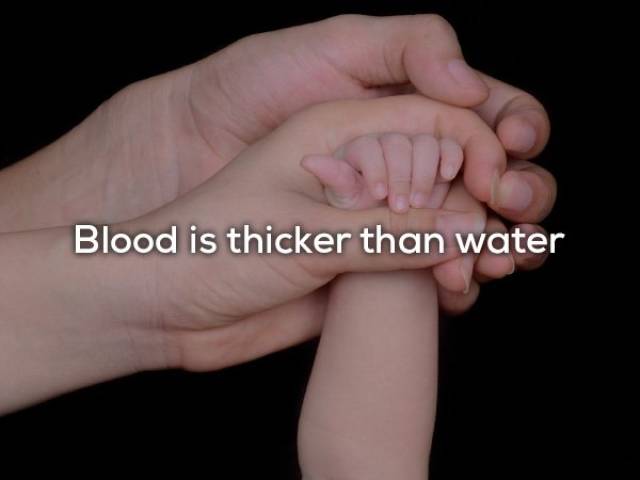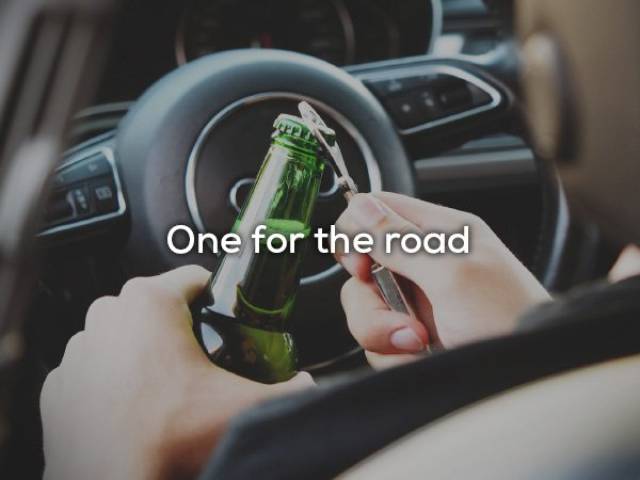What it means: ‘Bury the hatchet’ is used to declare a truce or end a conflict and become friendly.
Where it comes from: During the tense struggle between Puritans and Native Americans, both sides would bury their weapons during negotiation to make them inaccessible.
What it means: ‘Cold feet’ refers to losing confidence or considering backing out of something.
Where it comes from: Cold feet derives from a military term and is quite literal. Soldiers who had frozen feet were not able to charge into battle.
What it means: ‘A big wig’ is an important person, usually in a specific industry.
Where it comes from: During the 18th century, political figures would go big or go home with wigs. The bigger the wig, the higher they were viewed in their influence, hence big wig.
What it means: ‘Shotgun!’ is yelled to claim the front passenger seat of a car.
Where it comes from: In the Wild West days, the person who sat next to the driver of a stagecoach was armed with a shotgun to protect from attackers.
What it means: ‘Honeymoon’ is the vacation a newlywed couple takes soon after their wedding.
Where it comes from: An old tradition states that a newlywed couple has to drink a honey mead for the entire month after their wedding for fertility and good luck.
What it means: ‘Close, but no cigar’ is said when someone comes very close to success, but falls just short.
Where it comes from: At the turn of the 19th century, carnival games were marketed to adults instead of children. Before the oversized teddy bears, a popular prize was a cigar. If a patron was close to winning, but fell short, the term was thrown around like cotton candy.
What it means: ‘Turn a blind eye’ is used when someone pretends not to notice something.
Where it comes from: The phrase is believed to have began with naval hero Horatio Nelson, who used his actual blind eye to look through his telescope. His superior was signaling him to retreat from battle, but Nelson pretended not to notice and charged anyway, emerging victorious.
What it means: ‘Barking up the wrong tree’ is used when someone is pressing the wrong issue in an argument when another is apparent
Where it comes from: The phrase originated with hunting dogs that would chase prey up a tree and continue to bark even after the prey had left.
What it means: ‘The cold shoulder’ is when you intentionally but somewhat passively act unfriendly towards someone.
Where it comes from: The first comes from medieval England when everyone was done feasting, the host would give guests a cold piece of meat from the shoulder as a way of asking them to leave. The second is if a less-desirable guest showed up at a residence, the host would not prepare a hot meal but instead give a cold piece of meat.
What it means: ‘Bite the bullet’ refers to taking on a task that has been difficult emotionally or physically to complete
Where it comes from: During battles when there was no time or pain management for emergency surgery, patients were told to bite down on bullets to distract from the pain.
What it means: ‘Caught red-handed’ is used when someone is discovered in the act of doing something wrong or illegal.
Where it comes from: An old law stated that if someone butchered an animal that was not theirs, they would only be punished if caught with blood on their hands. If they were only caught with the meat, they would not be punished.
What it means: ‘Cat got your tongue?’ is used when someone is expected to speak, but remains silent.
Where it comes from: One origin is believed to be from a whip called “Cat-o’-nine-tail” which was used in the English Navy as a means of punishment that left victims speechless. The second possible origin is from ancient Egypt, when if someone was caught lying they had their tongue cut out and fed to cats. History is neat!
What it means: ‘Blood is thicker than water’ describes that direct family is more important than any other relationships.
Where it comes from: While the phrase is now used to put family first, the origins are actually the opposite. The full phrase “The blood of the covenant is thicker than the water of the womb” refers to soldiers who shared the blood they spilt in battles together. The ‘blood brothers’ as they were referred to, claimed to have strong bonds than biological brothers.
What it means: ‘One for the road is a final drink before leaving, or a drink to take along with you.
Where it comes from: In the middle ages, those sentenced to death were taken down Oxford Street to their execution. Along the route, the cart would stop and the condemned were allowed to have one final drink before their death.

